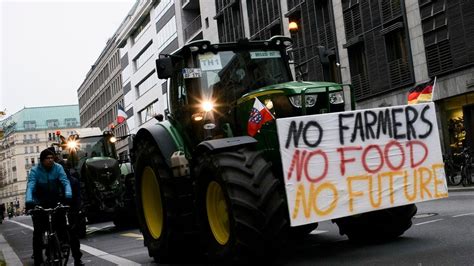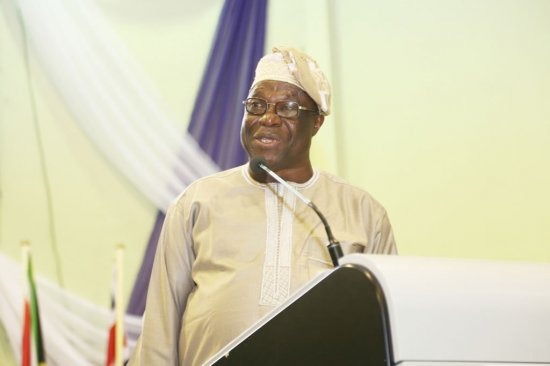By Sascha Meyer, Fabian Nitschmann and Matthias Arnold, dpa
The leader of the German Farmers’ Association has threatened further protests from Monday if government plans to cut agricultural subsidies for diesel fuel are not reversed.
“We don’t even need to ask the farmers. They keep calling and asking: ‘Is anything moving? If nothing moves, we’ll take to the streets again,” Joachim Rukwied said on Thursday, ahead of a key government budget committee meeting scheduled for the evening.
The conflict over government plans to phase out the fuel subsidy for the agricultural sector has also overshadowed the annual week-long Green Week agricultural trade fair in Berlin, typically a major event for the sector.
Angry farmers have spent weeks protesting against the subsidy cuts, with thousands driving tractors and other heavy equipment into cities and blocking roads.
A mass demonstration in Berlin on Monday brought thousands of tractor-driving farmers into the centre of the capital city.
Rukwied, however, said the protests so far have only been “foreshadowing.”
“If nothing changes, then there may be an eruption. From next Monday, if the budget adjustment meeting this evening does not produce a positive result in our opinion, we will continue with actions throughout Germany,” said Rukwied.
He declined to describe plans for protests, but said farmers hoped to “make pinpricks that hurt, but in no way escalate or radicalize.”
Chancellor Olaf Scholz’s coalition government has proposed phasing out the fuel subsidy for the agricultural sector as part of their plan to raise additional revenue and close a large budget gap.
Farmers, however, have complained that eliminating the subsidy would leave them paying among the highest diesel fuel prices in the European Union and put them at a disadvantage.
Ministers, including Agriculture Minister Cem Özdemir, have called for resolving the standoff by finding other ways to ease conditions for German farmers.
Speaking in parliament on Thursday, Özdemir called on the opposition to work with the government to improve structural conditions for the agricultural sector.
“We can all work together constructively to make German agriculture fit for the future,” Özdemir said.
Farmers can help address environmental issues, improve animal welfare and produce high-quality food at the same time, Özdemir said, “but someone has to pay for the effort.”
The conservative CDU/CSU opposition bloc has backed the farmer protests and denounced the government over its handling of the tax.
Opposition leader Friedrich Merz on Thursday demanded that the government leave the subsidy in place. He called the farmers’ demonstrations an “expression of growing dissatisfaction and pent-up frustration.”
Özdemir has proposed adding a fee on supermarket sales of food products to support agricultural investments.
Farmers’ groups, however, argue that the sector needs help now and cannot wait for that scheme to be implemented.
Rukwied, the German Farmers’ Association leader, has said the government must first back down on the diesel subsidy before any other issues are raised: “It makes no sense to discuss an overall strategy now.”
Some other agricultural industry groups, however, criticized Rukwied’s position as intransigent.
“I have the impression that Mr Rukwied is turning this into a personal showdown,” said Carolin Pagel, agricultural policy officer at the growers’ association Bioland.







